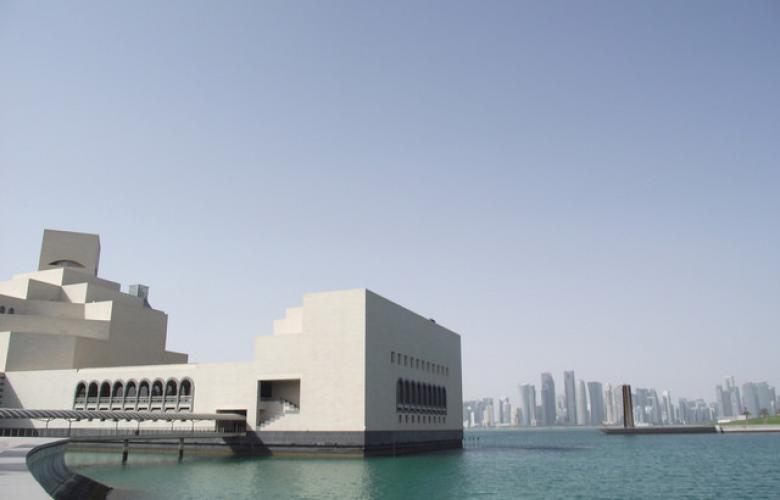Buying property in Qatar
Buying property in Qatar
Expats can purchase real estate in designated areas of Qatar.
This article is intended as a preliminary guide only and refers to some but not all elements required to consider in detail prior to starting any property dealings or due diligence. Property dealings are often complex, especially in foreign countries and we highly recommend you seek independent professional advice... read more...
In order to live and work in Qatar, all newcomers require a Residence Permit for which they will need a Qatari sponsor (company or individual). Once a worker receives their Residence Permit they can apply for further permits and licenses, sign a rental accommodation agreement and even apply for a loan.
When a worker first enters Qatar, their sponsor will arrange for a temporary visa which is then converted to a Residence Permit. Applicants may not leave the country during the period of visa-to-permit conversion. Usually, the sponsor sorts out the paperwork required.
Once expat workers receive the Residence Permit, they can sponsor their immediate family members (spouse, sons, daughters) to join them and live in Qatar. Residence Permits are renewed each year by the worker’s sponsor. There are many different visas available from tourist to residency, business, investor and transit. They can all be found at Hukoomi.
To obtain a residence or work permit, you must submit a passport, a good conduct certificate (police clearance certificate) from the country that issued your passport, and latest educational certificate in Arabic, or translated into Arabic. All original documents must be certified/attested through the embassy of your country followed by the Qatari Ministry of Foreign Affairs. To complete the Residence Permit procedure, applicants must take a medical examination, booked through the Ministry of Public Health. The results should be sent online to the Criminal Evidences and Information Department, for the final stage of taking hand fingerprints. Once the process is completed and the authorities are satisfied with the application, the permit will be granted.
Residence Permit fees
The fees for Residence Permits are:
- Personal Sponsorship Work permit fee US$27 annually
- Residence permit fee: US$82 annually + US$27 for ID card (as per the validity of residence permit).
- Fee for obtaining residence permit or renewing it for those who are on parent sponsorship, accompanying persons, those who got separate residences permits and new born babies including additions and deletion in passports: US$110
- Company Sponsorship Work permit fee: US$27 annually Residence permit fee: US$270 annually + US$27 for ID card (for the period of residence permit.
Where can expats buy property in Qatar
The three main freehold developments where foreigners can but real estate in Qatar are Pearl Qatar, West Bay Lagoon and Al Khor Resort Project. They have apartment blocks, commercial properties and villas. Local property developers can advise which properties are legally allowed to be purchased by foreigners, and can be verified with Doha Municipality or the Ministry of Justice’s Real Estate Registration Department.
There are properties in other areas available for purchase by non-Qataris, but thorough investigations should be made by the purchaser to ensure it is legally available for foreigners before making any commitment to purchase.
Expats are allowed to purchase a property for a 99 year period, which is extendable for a further 99 years, and the property is transferable to their heirs. Take a look at the areas available to foreign buyers here.
How to buy property in Qatar
As the real estate industry is not regulated, it is advised to look around for recommended real estate agents through colleagues or internet forums.
Buying off-plan (purchasing a unit in an apartment block before it has been built) is common in Qatar and these properties can be purchased directly from the developer. Whether you are buying through an agent or from the developer, make sure you understand all costs involved, and obtain a written quote. Off-plan properties do pose a slight risk as there may be delays in construction, or plans may change after purchase.
Once a property is selected, you need to negotiate the price with the seller through the agent. Once you have agreed on a price, the contract should be drawn up or verified by a lawyer, and a deposit paid to the seller’s lawyer, which is usually around 30% of the full purchase price. Your lawyer will exercise due diligence including reviewing the proprietary lease, the building’s by-laws, statements of the building’s financial condition, obtaining and verifying any necessary building licences, planning permission consents, and company registration documents of developers or sellers. A payment agreement should be set up for any instalment or deposit transactions, particularly when it is an off-plan purchase. Legal documents in Qatar are always written in Arabic.
Registering the property
After contracts have been exchanged, the purchaser must take the property title deeds, signed contracts and either final payment confirmation (if buying off-plan) or mortgage and deposit details to Qatar’s Real Estate Registration and Authentication Department at the Ministry of Municipality and Urban Planning. Application forms need to be completed and documents verified, with at least one of the parties present. Registration must then be completed at the Ministry of Justice’s Real Estate Registration Department. For this process, it is advised to use a good property lawyer, reliable estate agent or developer’s representative. For leasehold properties, you will also need to visit the Office for Registration of Real Estate for non-Qatar nationals, located in the Doha Municipality office in Al Sadd.
Fees
There is no property tax in Qatar, but there is a transfer fee of 0.25% of the value of the property. Fees may also be charged by the developer for ‘extras’ such as ongoing maintenance, car park fees or other facilities, so it is important to be aware of these before the purchase is agreed on.
Getting a Mortgage
Before searching for property in Qatar, speak to your bank about a loan as each bank has its own criteria for mortgage loans and will provide details of loan repayments and schedules. You can also apply for a mortgage from a bank in Qatar. Interest rates and lengths of mortgages vary. According to law firm Al Tamimi some Qatari lending institutions do not charge interest in compliance with Sharia law, but usually have a shorter repayment term. The Qatar National Bank offers financing at rates varying on salary level. The maximum loan they offer to expatriates is US$823,280 with a term of not more than 15 years, and up to 70% of the value of the property.
Article sources:
See also:
For Sale: 5 bedroom penthouse apartment in The Pearl, Qatar
This article and the above linked artciles are not complete and are intended as preliminary guides only. These guides refer to some elements to consider prior to starting any property dealings or due diligence. Property dealings are often complex areas, especially in foreign countries and we highly recommend you seek independent professional advice... read more...




